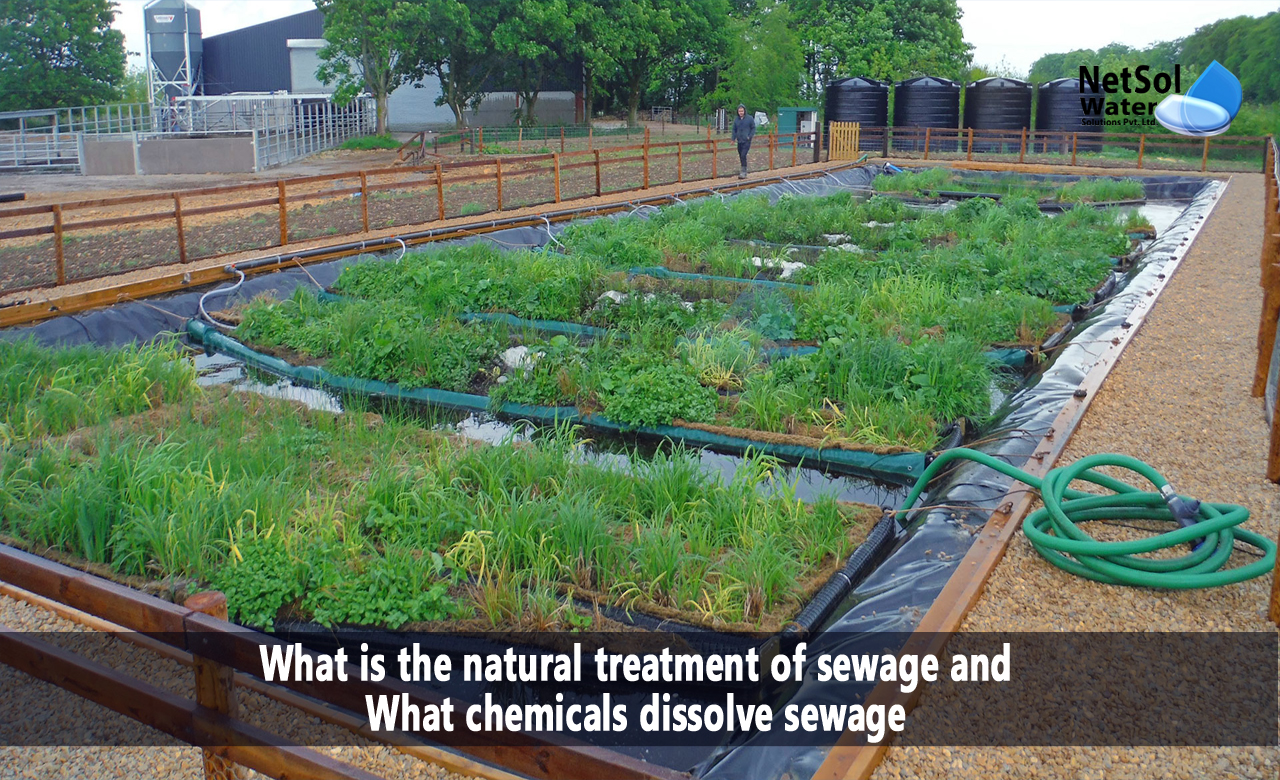What is the natural treatment of sewage and What chemicals dissolve it?
Wastewater from homes, industries, and businesses has to be disposed of safely through the sewage treatment process. Sewage treatment was typically through chemicals and/or mechanical methods to clean the water, which was then released back into the environment. Nevertheless, concerns arise about the effects of the traditional technique on the environment. Thus, there is an increasing preference for natural sewage treatment techniques considered environmentally friendly. This is the sector where we’ll discuss the concept of biological sewage treatment & how people are increasingly choosing it as their preference. The Role of Chemicals in Sewage Treatment.
Natural Sewage Treatment: An Overview
Natural sewage treatment involves using the natural environment to dissolve and purify sewage in natural wastewater treatment or ecological wastewater treatment. The approach resembles the natural processes in rivers, lakes, and wetlands where microorganisms and plants cooperate in purifying water. There are several critical components of natural sewage treatment systems:
Constructed Wetlands: The constructed wetlands are one of the most common natural sewage treatment methods. The treatment process includes directing wastewater into water-saturated shallows, where indigenous wetland plants, bugs, and algae facilitate the purification and cleansing of the water. Wetlands are economic and ecological methods of sewage treatment.
Reed Bed Systems: The reed bed system includes layers of gravel, sand and reed plants. The various processes that occur in the layers that sewage water is passing through include physical, chemical, and biological processes, which help remove contaminants and nutrients.
Bioremediation Ponds: Bioremediation ponds are constructed to promote the development of advantageous bacteria and microorganisms which decompose the organic content in sewage. They are usually found in agriculture and rural areas.
Soil Infiltration Systems: Sewage is sometimes ‘trickled’ through the soil for treatment. Soil is a natural filter that purifies impurities and pathogens from water.
Oyster Beds: They are naturally filter feeders, oysters are a natural way of purifying water where they remove suspended solids and excess nutrients in the sewage.
Advantages of Natural Sewage Treatment
Environmental Sustainability: The environmental impact of natural sewage treatment systems is much lower than that of conventional methods. The treatment process also leaves less carbon footprints as ituses less chemicals and energy.
Cost-Effective: Many of these natural sewage treatment systems are low-cost and can be easily installed and maintained in rural areas where resources are inadequate.
Biodiversity Enhancement: Wildlife habitats and increased biodiversity are occasionally found within these systems.
Aesthetic Benefits: The constructed wetland or reed bed systems may also improve the appearance of a treatment site and may offer possibilities for play or relaxation.
Chemicals in Sewage Treatment
For instance, natural sewage treatment processes, which involve biological and physical processes, use some chemicals during certain stages of sewage treatment. Such chemicals are usually employed within boundaries and under strict rules so that they do not have a harmful effect on the environment. Some common chemicals used in sewage treatment include:
Chlorine: Wastewater containing harmful pathogens is disinfected with chlorine before it is released. Nevertheless, chlorine has been linked with developing potentially toxic disinfection by-products.
Aluminum Sulfate (Alum): Alum comes in handy as a coagulant so as to assist particles in sewages form clumps or flocculation thus separating solids.
Polymer Flocculants: Solids such as grit and organic materials present a challenge when it comes to their settling in the treatment process.
Conclusion
Natural sewage treatment methods offer a sustainable and eco-friendly approach to wastewater treatment. By harnessing the power of biological processes, these systems provide an effective means of purifying sewage while minimizing the environmental impact. While some chemicals are still used in sewage treatment, their use is carefully managed to ensure they do not harm the environment. As our awareness of the importance of sustainable wastewater management continues to grow, natural sewage treatment is likely to become an even more prominent solution in the years to come.
Netsol Water is Greater Noida-based leading water & wastewater treatment plant manufacturer. We are industry's most demanding company based on client review and work quality. We are known as best commercial RO plant manufacturers, industrial RO plant manufacturer, sewage treatment plant manufacturer, Water Softener Plant Manufacturers and effluent treatment plant manufacturers. Apart from this 24x7 customer support is our USP. Call on +91-9650608473, or write us at enquiry@netsolwater.com for any support, inquiry or product-purchase related query.



